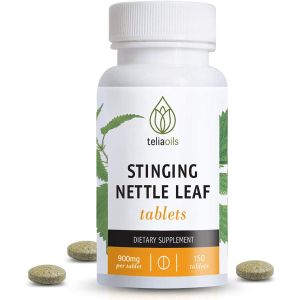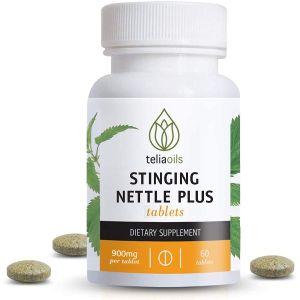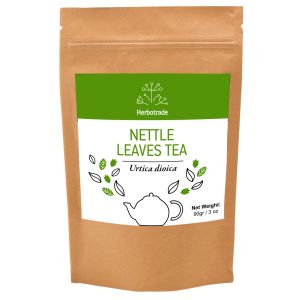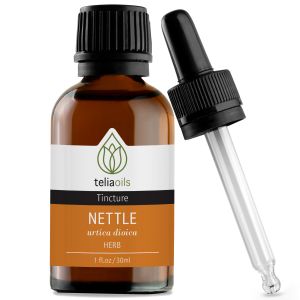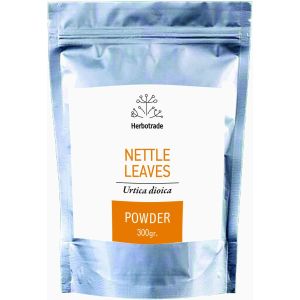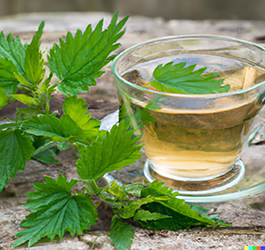Is Nettle Leaf Good for Kidneys? Unlocking the Benefits of This Powerful Plant
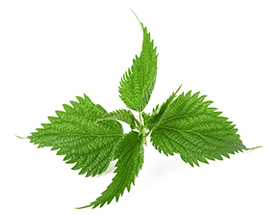
Herbal remedies have long been a popular choice for those seeking to optimize their kidney health. Among the wide range of plants and herbs that people turn to, nettle leaf (Urtica dioica) has been a potent option with numerous potential benefits. In this article, we will explore the question: is nettle leaf good for kidneys? We will delve into the various ways nettle leaf may support kidney function and overall health, while also providing tips on how to incorporate it safely and effectively into your wellness routine.
Nettle Leaf and Kidney Health:
Nettle leaf has a long history of use in traditional medicine, especially for its diuretic and anti-inflammatory properties. Its diuretic effect helps promote urine production, which can be beneficial for individuals with kidney issues. Increased urine output can help flush out excess fluids, salts, and waste products from the body, thus reducing the workload on the kidneys.
The anti-inflammatory properties of nettle leaf can also provide relief for those with kidney problems. Chronic inflammation is often associated with kidney disease, and managing inflammation may be crucial in maintaining kidney health. Nettle leaf contains compounds such as flavonoids and phenolic acids that have been shown to possess anti-inflammatory effects.
Other Benefits of Nettle Leaf:
Beyond its potential benefits for kidney health, nettle leaf offers several other health-promoting properties. These include:
Blood sugar regulation: Nettle leaf has been found to lower blood sugar levels and improve insulin sensitivity in some studies, making it a promising choice for those managing diabetes or prediabetes.
Blood pressure management: The diuretic effect of nettle leaf can help reduce blood pressure by decreasing fluid retention. Additionally, nettle leaf contains compounds that may relax blood vessels and reduce inflammation, further contributing to blood pressure regulation.
Antioxidant support: Rich in antioxidants like flavonoids and carotenoids, nettle leaf helps protect the body from oxidative stress, which can damage cells and contribute to various health issues, including kidney disease.
How to Use Nettle Leaf:
Nettle leaf can be consumed in several forms, including tea, capsules, and tinctures. To prepare nettle leaf tea, steep 1-2 teaspoons of dried nettle leaves in boiling water for 10-15 minutes. You can drink this tea up to three times a day to reap the benefits.
If you prefer capsules or tinctures, follow the recommended dosage on the product label or consult with a healthcare professional for personalized guidance. Always choose high-quality, organic products from reputable sources to ensure you are getting the most out of your nettle leaf supplements.
Safety and Precautions:
While nettle leaf is generally considered safe for most people, there are a few precautions to keep in mind. Pregnant or breastfeeding women should consult with their healthcare provider before using nettle leaf, as its effects on pregnancy and lactation have not been well-studied. Additionally, those taking diuretics, blood pressure medications, or blood thinners should speak with a healthcare professional before incorporating nettle leaf into their diet, as it may interact with these medications.
Nettle leaf boasts an impressive group of potential benefits for kidney health, from promoting urine production to reducing inflammation. Its versatility and availability make it an attractive option for individuals looking to support their kidneys and overall well-being. As with any supplement, it is essential to consult with a healthcare professional before using nettle leaf to ensure its safety and effectiveness in your unique situation. With proper guidance, nettle leaf may become a valuable addition to your kidney health toolkit.

 de
de el
el
